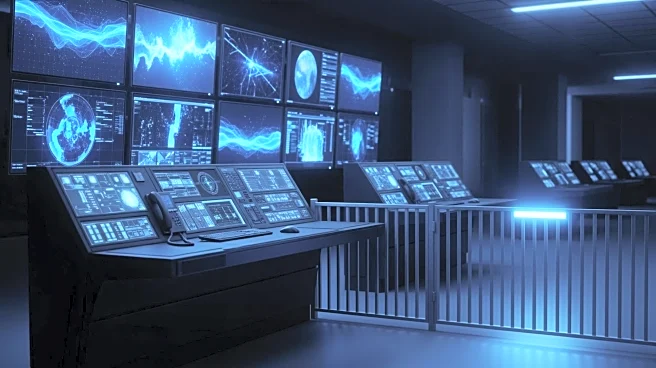What's Happening?
Lawmakers have called for an investigation into NASA's Goddard Space Flight Center following the closure and relocation of several facilities during a government shutdown. A letter from Rep. Zoe Lofgren
and 15 other members of Congress requests NASA's Office of Inspector General to audit the management of the center, focusing on the relocation and closure of buildings and equipment. The lawmakers argue that these actions are degrading Goddard's scientific capabilities and may inflict long-term damage. The closures are part of a broader consolidation plan, which NASA officials claim is fiscally necessary. However, the lawmakers express concerns about the rushed nature of the relocations and their impact on critical missions like the Nancy Grace Roman Space Telescope and the Dragonfly mission.
Why It's Important?
The investigation into NASA's Goddard Space Flight Center is significant as it highlights potential mismanagement and the impact of budget cuts on scientific research. The center plays a crucial role in space and Earth sciences, and disruptions could affect ongoing and future missions. The lawmakers' concerns about political pressure and the administration's budget cuts underscore the broader implications for NASA's ability to fulfill its mission. The audit could reveal whether the relocations align with NASA's long-term plans and whether they comply with legal requirements. The outcome may influence future funding and operational decisions at NASA, affecting the agency's scientific and technical capabilities.
What's Next?
The decision to open a formal audit now rests with NASA's inspector general. If the audit proceeds, it could lead to changes in how NASA manages its facilities and resources. Congressional scrutiny is likely to intensify, potentially affecting future budget allocations and operational strategies. The investigation may also prompt discussions about the balance between fiscal responsibility and maintaining scientific capabilities. Stakeholders, including NASA employees and scientific communities, will be closely monitoring the situation, as the audit's findings could have long-term implications for NASA's operations and its ability to conduct critical missions.









